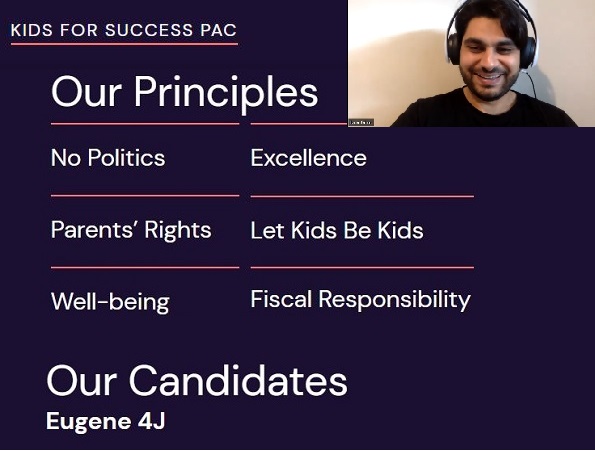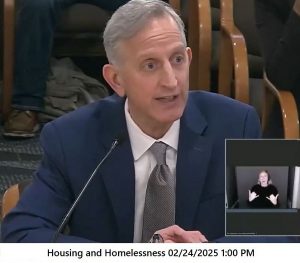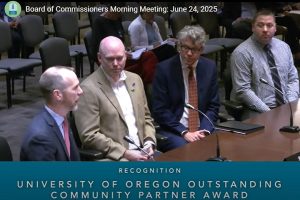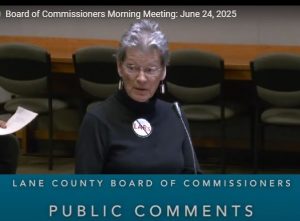Founder of school board PAC promotes six principles
7 min read
While many complain about the public schools, one parent organized a political action committee. For the May 2023 election, his PAC is supporting three Eugene school board candidates: Timothy Sutherland, Grant Johnson, and Michael Bratland. From Kids for Success:
[00:00:17] Ibra Taher (Kids for Success): From my perspective, a lot of the principles, a lot of the things that I would like to see in my kids’ school, are not there. And many people complain about them, but not too many people organize themselves to do anything about them.
[00:00:32] So I was thinking, ‘Now, what can we do—what can I do—to have a group of people organized around only specific principles and who can bring them to the schools, our schools? So I came up with the idea of a PAC, because we can have money donation and support candidates financially, I thought it’s really feasible.
[00:00:55] And we have only six principles that we ask all of our candidates to abide by and agree with, which is listed on our website and these principles, when I developed them, it’s just things that we can agree on, all of us as parents, without us having any political leaning.
[00:01:16] For example, we don’t want to see ideologies in schools or politics in schools, from both sides. We don’t want to see that. And I’m clear with my candidates, I told them, let’s assume in 10 years, people who think like you, have your values, control the school board, we don’t want you to push your agenda now. You can say, ‘Oh, now I won and I want to impose my agendas on the kids.’ No, we don’t want to see that.’
[00:01:47] So no matter who won the school board, who have the control of the power, we don’t want you to impose any kind of ideology, any kind of politics, any kind of worldview.
[00:01:59] Unfortunately now in our schools they do that. I mean, we disagree with many things, especially when it comes to the cultural values, the moral values. We disagree with many teachers, many educators, and why should we allow our kids to go and listen to these ideologies and worldviews if we don’t agree with them? Can we keep them out of the school? This is what we want.
[00:02:27] I think everyone would be happy, but unfortunately many people attack us for that. I don’t know why. Probably they think the public school is the place to teach worldviews and I think, if it’s the public schools, then it should accommodate everyone, and accommodating everyone should be really focused on the curriculum and what the curriculum should be.
[00:02:50] I know from experience that some people would say that the schools should serve as a moral training place for the society, along with the scientific one. But if we have a very diverse society, what do you do? People don’t agree with you. What do you do?
[00:03:12] I mean, it’s really nice to teach kids morality because it is like you are seeding these concepts in them. You need to do that as a parent, but not as a public educator. It’s not your responsibility.
[00:03:27] So this is one of the principles that we have as a PAC.
[00:03:31] And the second one we mentioned, no ideologies or no politics.
[00:03:35] The third one of our principles: Parental rights. We don’t want to see any kind of interference between the parent and the kid. We did not want to see what we saw with COVID. As a parent, I didn’t have the choice to do anything for my kids. I didn’t have a choice. It was what the educator said. As a parent, I had to follow the rules of the school because those people who disagree with us deemed it necessary for them. They did not give us the option as parents to decide for our kids.
[00:04:14] The fourth one, we have a problem with spending in our schools. I don’t know if you are aware: One of the school board members in 4J got compensated for a security system because she said some parents pose a threat to her.
[00:04:33] And another one was getting a life coach. I’m not making this up, a life coach. They charge about $400 an hour. And the school board would pay for that person for three months to coach a school board member.
[00:04:49] Other than that, there’s all of these committees that are being formed, the experts, the consultations that are happening. That has nothing to do with the kids and the educational process itself. So you take a lot of money from the government and you don’t use it to improve the kids and the curriculum that would really affect the kids.
[00:05:12] Public money, taxpayers’ money, we should be very responsible because taxation, a lot of times, can amount to what we call theft, if it not used in a proper and necessary way. We want to see fiscal responsibility there, at least.
[00:05:32] And the fifth one would be transparency. We saw a lot of tragic issues in the past three years at least here in Eugene: Mental health and these kids with a lot of problems.
[00:05:46] We saw some incidents of suicide, between schoolkids. This is tragic. Maybe they can alert the parents that this kind of behavior is spreading among our kids. Many parents did not know about them or they were not made aware of them. I don’t want the schools to treat the kids. We want to see open communications. This is what we’d like to see.
[00:06:12] John Q: The website Kids-4-Success.com lists six principles. The other is ‘excellence in learning.’
[00:06:19] Ibra Taher (Kids for Success): I ask this fundamental question: Why should we have public education? Or: Do we need a public education? This discussion would lead to the curriculum and the direction of the schools, but we don’t have that fundamental and foundational discussion about the nature of education, the need for education, and what it’s supposed to do.
[00:06:42] If we can get all of the parents, all of the community to talk about it and then figure out the need for education and: What is the curriculum? What should we include in the curriculum? What is our approach?
[00:06:55] So these are the principles that we have. And our group is not partisan. We don’t recruit people, we don’t support people because of their party affiliation. It’s just their principles.
[00:07:08] Someone asked me just like a few days ago, what is the criteria to vet your candidates?
[00:07:14] We meet with them. If they share with us the same principles, then that’s good for me. I mean, this is what we need.
[00:07:22] I ask them specifically about, ‘Oh, what would you do if you have the majority and you have all of that power and you can do whatever you want to do, would you do what you were criticizing before?’ I tell them that we don’t want to see that and they agree. Because they tasted it. They lived that experience of being ignored.
[00:07:45] They’ve been to school board meetings. Nobody listens to them, even if it’s their right to be listened to, to at least acknowledge what they want. And nobody listens to them.
[00:07:57] They’ve been the subject— many of them are parents. They’ve been on the receiving end of these policies that we don’t like, that kind of behavior.
[00:08:06] And we’re trying to make a difference, at least, to have that kind of message: Don’t use schools to advance your agenda. Even if you win, don’t, don’t do the opposite of what you were preaching. This is what we have in our PAC.
[00:08:21] John Q: Ibra spoke about national political issues the two times he ran for the U. S. Senate. He does not think national political issues should dominate 4J.
[00:08:30] Ibra Taher (Kids for Success): You would expect that school boards would be the least affected by politics, but they’re not. It is really an annoying thing to see. Everything happening on the national level, you’ll see some reflection to that thing on the school board.
[00:08:45] If they want to talk about the election, or maybe climate, or maybe look at COVID, they talk about all of these things. You can see them during school board meetings. It’s not focused on the curriculum. They think there is some kind of agendas that needs to be pushed and mentioned on the kids. They think it’s moral to push these agendas. So it is very highly politicized.
[00:09:09] The source of the problems is the federal government. Everything is influenced by it, the discussions that the federal government have, and the Congress, when they have these discussions about specific subjects, it influences everything. It’s really highly, highly centralized. By politicizing the education process, we lost our focus on the education itself. And I think if we want to see changes, we should focus on it.
[00:09:39] John Q: A two-time candidate for U.S. Senate, first as a Green and then as a Republican, Ibra Taher launches a political action committee and supports three candidates for the Eugene 4J school board.






